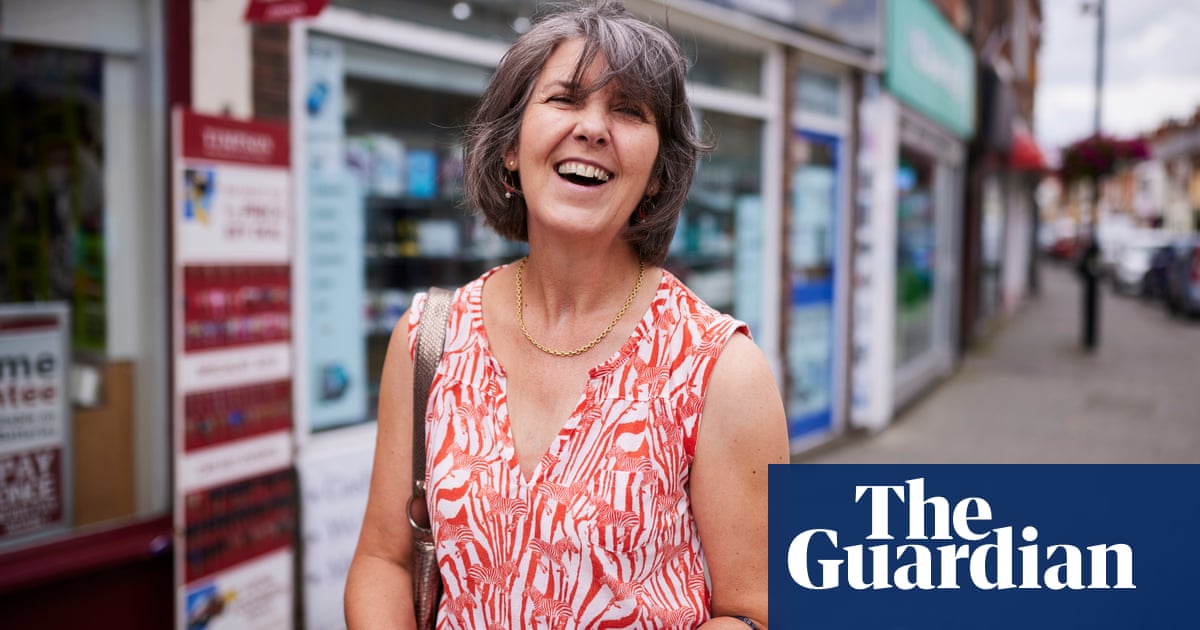
“The Tories really don’t deserve to be in but I’ll struggle to support Labour. I will have to vote. But it will be a struggle to vote.” David Cherry is out walking his dog, Bella, in the spring sunshine in Chingford Green park.
“It’s quite a depressing state, to be honest,” Cherry continues. “Neither of them give you a clear indication. They all talk, we all know nothing’s going to happen.”
Enthusiasm for the election is hard to find in this north-east London constituency, where a walkover by Labour has been thrown into doubt by the decision of the party’s former candidate Faiza Shaheen to run as an independent.
Chingford and Woodford Green has been represented by the veteran Tory minister Iain Duncan Smith since its creation in 1997. He held the predecessor seat of Chingford for five years before that, inheriting it from the Thatcher-era cabinet minister Norman Tebbit.
Like other outer-London constituencies that Labour is targeting, the demographics here have changed over time, becoming younger and more diverse, as people have moved from inner London.
Across the park, Donald Bell-Gam, 36, says he moved to Chingford from Walthamstow. “I can’t stand Rishi Sunak. He’s greedy. All he cares about is money, he doesn’t really care about anyone here. He doesn’t understand what we’ve been through in society,” he says, citing knife crime and the difficulties of finding a job.
A young couple sitting on a bench nearby, Tom and Maria, who don’t want to give their surnames, say their politics clash with those of their neighbours. “We moved up from Walthamstow and we’ve found ourselves in a bit of a minority,” says Tom. “There’s all this stuff about migration, which is completely blown out of proportion in our opinion, and it’s weaponised, which is a sad situation.”
Duncan Smith’s Labour rival was meant to be Shaheen, the leftwing economist who grew up locally and ran him close in 2019, but she was abruptly ditched on 29 May by Labour’s ruling national executive committee – and will now run as an independent.
Shama Tatler, the councillor from Brent who is now the party’s candidate, has been out and about campaigning, but some former Labour supporters say they would struggle to back her.
“There is just this general feeling that we have been sold down the river completely,” says one local voter, who does not want to be named. “We are negligible.” Another describes the party’s treatment of Shaheen as “disgusting”.
Charlie Richardson, a Labour member who had been campaigning for Shaheen, says he feels “shellshocked and outraged”, pointing to the work Shaheen had done to build up a personal following in the area. In the remaining weeks of the campaign, she and her committed supporters will pit that support against the formidable power of Labour’s brand.
The party is assuming the red tide sweeping the UK will carry Tatler comfortably over the line. One recent projection put Labour’s vote at 54% in Chingford and Woodford Green, against 29% for Duncan Smith, leaving quite some margin for Shaheen to peel away progressive voters without saving the Tory former cabinet minister.
Her supporters believe she can do more than that, and win – though victories by independent candidates at general elections are vanishingly rare.
“The way that Labour has treated her has tapped into a nerve,” says Helen Watson, who resigned as chair of the Woodford Green branch of the Labour party to back Shaheen alongside more than 40 other members.
“The thing that you get on the doorstep is, ‘I don’t want to vote Tory, as they’ve messed the country up,’ but there is absolutely no enthusiasm for the Labour party. A lot of people who don’t want to vote Tory will now look at voting Faiza.”
With his opponents mired in acrimony, Duncan Smith has been assiduously cultivating his patch. In south Chingford, the team of volunteers who run the local community library say he has helped them to fight off the threat of closure – and they praise him for popping in regularly.
That gratitude may not extend to the ballot box, however. “I literally don’t trust any politician,” says 72-year-old Sylvia Quinn. Asked how she will vote, fellow volunteer Sue Harris says: “Not a clue at the moment. I think they’re all as bad as each other. I think a lot of people won’t vote.”
Housed in a former shop on a busy street, the library is a social hub, offering tea, biscuits and conversation as well as reading matter, and the volunteers are frank about the fact it is as beneficial to them as it is for readers. “For me personally it has been incredibly helpful,” says 91-year-old Marie Wragg. “After losing my husband, it has given me a sense of purpose.”
Asked what issues affect the local community, the volunteers mention (Labour) council plans for high-rise housing, the dire state of the pavements and NHS waiting times, including the difficulty of getting a GP appointment.
The future of the local hospital, Whipps Cross, just outside the constituency, comes up often in this area. It was meant to be rebuilt by 2030 as part of Boris Johnson’s pledge of 40 new hospitals, but work is only just getting under way, with the demolition of nurses’ accommodation to make way for a new car park.
The local group Action4Whipps has been campaigning assiduously, warning that as well as being painfully slow, the plans for the new hospital involve insufficient beds and no replacement for key services it currently provides, such as the Margaret Centre, an award-winning end-of-life care unit.
“It’s ridiculous,” says Mary Burnett of Action4Whipps, speaking in her pleasant Victorian house in Highams Park in the south of the constituency. “We could end up with a spanking new hospital, which probably could cost £1bn, and there will still be all the same problems. People waiting in A&E, unsafe discharges, ambulances stacked up.”
Labour has promised to go ahead with the plans to rebuild four London hospitals, including Whipps Cross. Tatler posed outside with the shadow health secretary, Wes Streeting, last week, saying: “I’m committed to helping Wes rebuild this hospital.” Nevertheless, Burnett expects to have to keep campaigning for some time yet.
Despite being on the edge of London, the constituency is generously served with green space. Woodford Green is home to a statue of Winston Churchill, who once represented Epping, and a cricket ground that would not look out of place in a rural village. Just to the west are the 7.3 hectares (18 acres) of the Highams Park. In Humphry’s, the park’s cafe, a group of regulars are having coffee.
“Rishi Sunak knows what he’s doing,” says Shiv Bagga, a pharmacist. “After all, the others put the Conservatives in a mess, he’s got policies. There is no other party to vote for. Can you put that in your paper?”
Sheila Smith-Pryor, who calls Starmer an “eejit”, once served as the Liberal Democrat mayor of Waltham Forest, but will be voting Tory – as will almost all her neighbours on the affluent nearby Highams estate, she claims.
Pointing to Labour’s policy of adding VAT to school fees, she says voting Conservative is, “in our best interests. Some of us sent our kids to fee-paying schools, some of us pay for private health insurance. But that’s our choice: we work, and that’s the way we spend our money. Other people would begrudge us that, but they are all down the pub.”
Some are not down the pub, however, but queueing up at Highams Park Hub, a bustling food bank inside All Saints’ church, a short walk away. More than 200 clients a week, referred by local GPs, schools and other institutions, are served a meal and allowed to choose from a range of basic foods to take away with them.
“What we are very conscious of is that if people have very little food at home, most of the time they think about the family rather than themselves – and so coming here and having breakfast or having lunch is important for them,” says the Hub’s manager, Sharon Waldman.
Tables and chairs are set up for chat, with toys for children, and trained befrienders circulate, able to advise clients on benefits and housing.
Selver Berisha, originally from Kosovo, recently moved into social housing locally and lives alone; he comes for much-needed company as well as food. Kenneth Busumbru is waiting for the renewal of his taxi permit so he can resume work. “It’s very impressive, what they do here,” he says.
Miriam Menezes has come with her two young children to support her cousin who has cancer and is struggling to make ends meet. She, too, speaks warmly about the Hub, with its army of volunteers.
Politics, let alone internecine Labour warfare, intrude little here among the myriad of daily struggles, but when asked her thoughts about the general election, Menezes pauses, and then sighs. “We’re in need of a change, so we can only hope that something better comes along.”












